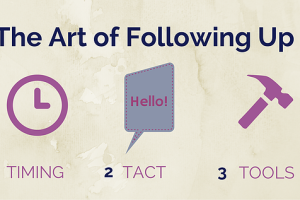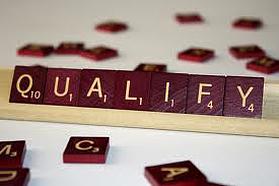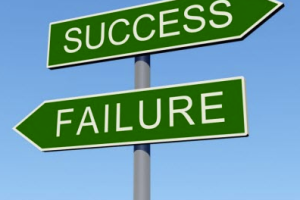Returning from SXSW the other week reminded me of some of the most challenging obstacles entrepreneurs face in growing their businesses. Ironically, such challenges arise as things are beginning to look truly favorable. Sales are good. The opportunities list is growing. We’re feeling optimistic about scaling the business to the next level, but we’re also finding that we simply can’t field all of the opportunities ourselves. Meanwhile, we suspect that if we don’t find a way to respond to the growing demand for our product, a more agile competitor may enter the fray and dwarf our lead. It’s a make-or-break moment. What do we do?
One of the more obvious answers is to hire a salesperson. Grow the force. Cover the territory. Establish market dominance before someone else does. As attractive as that sounds, however, it can prove to be the very decision that will undo us. That’s because hiring salespeople is neither as easy nor as productive as it sounds. Let’s learn from the mistakes of others and listen to their advice on this one. Here are a few tips culled from their collective wisdom:
Know the right time to hire.
When it comes time to think about hiring our first sales reps, we’re likely to imagine that we’ve already waited too long. But sales columnist Elli Sharef echoes the sentiments of a number of seasoned entrepreneurs who warn that many start-up founders hire their first salespeople far too soon. “Don’t hire a sales person if you have not sold at least ten deals and if you don’t feel like you fully understand the product-market fit,” she says. “It’s tempting to want to hire a sales person to figure all this out, but it rarely works. Sales people can’t tell you how to improve your product such that it’s sellable. They can only sell a product that is ready for prime time.” This is a critical insight. As entrepreneurs, it’s our job to set the tenor of the sales message and ensure that the content of that message is compelling. If we can’t sell the product yet, we shouldn’t assume that bringing in more experienced sales personnel will change that.
We may not like to think of ourselves primarily as salespeople, and that’s fine. But we also need to remember that someone who doesn’t know how to sell has no business hiring another person to do so. Veteran entrepreneur Mark Suster makes this very plain. “You should already have a good feel for the customer pain, how you solve it, how your product differs from competitors and what the acceptable price points for your product should be. If you don’t have a ‘base camp’ understanding of these issues, you’re not ready to hire a sales person.” The “right” time to hire a salesperson, in other words, is not so much when we have a product ready for release to the world, but at that point when we have a provisional sales methodology in place—a methodology that is already well-aligned to the needs and readiness of the market. If the product-market fit is good, a founder with even modest sales skills should be able to close 10 to 15 solid deals, tweaking the approach a little each time, until the marketing message and the sales approach are clear. Then—and only then—is it time to consider scaling this sales strategy with additional personnel.
Identify the right candidates for the environment.
We said earlier that someone who doesn’t know how to sell shouldn’t be hiring salespeople, and that’s definitely true. But that doesn’t mean good entrepreneurs will necessarily be the top-performing salespeople in their organizations. In fact, recognizing and leveraging the superior talents of others toward a common vision is the entrepreneur’s hallmark skill. Unfortunately, the marks of a “good” salesperson are difficult to pin down until we know exactly what we’re looking for, and it’s our job to figure that out before we write up a job description.
Some of the qualities that we’ll want are obvious: charisma, persuasiveness, strong conversational abilities and an indefatigable sense of optimism. Nevertheless, sales consultant Mark Birch encourages founders to spend less time considering a candidate’s personality and more time looking at demonstrable results from their work history. “It does not have to even be directly related to quota carrying roles,” he explains, “but any situation where a candidate took the initiative and did something significant from beginning to end. That is what you really want from a salesperson: someone who can take initiative, has a get-things-done attitude and does not give up easily.” For instance, while a college degree wouldn’t necessarily prove a candidate’s sales ability, it might serve as strong evidence that the individual in front of us has both the drive and the tenacity to see a deal through. The same goes for other licenses or specialized training, as well as for any leadership roles in special projects.
Of course, a good sales candidate in any environment will need to have strong consultative instincts. “These days, no one buys because they like the sales rep,” Birch argues. “Buyers are much more educated about products, negotiation tactics and purchasing strategies. They do not need golf outings or free meals; they need people that can bring value and add substance to the conversation.” In other words, the salespeople we hire need to be able to do more than just push products and talk up features; they need to demonstrate the kind of intelligence and market awareness that shows they understand (or can be made to understand) the problems our customers are facing and how our solutions address them. They have to be able to think on their feet and adapt their style to suit the audience. Steli Efti, CEO of sales consulting firm Close.io, has an interesting way of putting this ability to the test right in the job interview: by giving candidates an opportunity for rebuttal. “The most important skill for a Hustler is to manage objections,” he writes. “Sometimes I even tell good candidates, ‘No, and here’s why,’ giving them a chance to pitch after hearing an objection.” There’s no reason a job interview shouldn’t become an opportunity for a prospective salesperson to demonstrate what they’re made of.
It’s important for us to remember, too, that the kinds of skills that translate well to a larger, more organized sales department will not necessarily be as effective in the start-up environment. Our first salespeople will need to be entrepreneurial themselves—people who have a sense of how to nurture existing leads while simultaneously developing new opportunities in areas no one else has thought to look yet. “Try to find a maverick who is able to work effectively without structure and in rapidly-changing environments,” advises author and career expert Heather Huhman. “Such is the nature of most startups.” And she’s right. The kind of person who is likely to thrive and grow sales in small companies like ours will see themselves as part of a closely-knit team that is still very much involved in developing a cohesive sales strategy for the market. They will be eager to get involved in all facets of the company’s culture and brand positioning, reluctant to be tagged as simply “the sales guys.”
Which leads to our final point.
Build a brand, not just a sales team.
We have to remember that new hires aren’t company founders. Even the best of them have no immediate stake in our products or companies, and that’s because they haven’t been with us since the beginning. That personal stake is what gives founders and those close to them a passionate drive to see the brand succeed. It takes a peculiar kind of individual to be willing to come in from the outside and take personal ownership over another’s brand, and yet this is just the sort of person we’re looking for in the start-up world. Teaching a sales methodology is far easier if the people we bring on board have a reason to want to sell that goes beyond earning a good commission. As sales growth expert Tom Hopkins writes, “You’re trying to find someone who’ll love your product enough to share their conviction with others.” We’re not just trying to grow sales, after all; with each new sales opportunity, we’re also building our brand.
The right kinds of salespeople for start-up companies, therefore, don’t necessarily need to be seasoned inside sales reps from large corporations. Indeed, such individuals may wither in the less structured environment of a new company. No, the kinds of people we’re looking for may be experienced or inexperienced, from big companies or small companies. What they all have in common is that they’re ambitious and really, really passionate about being a part of the solution our companies are selling. They have a stake in more than just the paycheck. Such individuals won’t be mere order-takers. They’ll be brand evangelists.
Once we’ve found one or two candidates who have this sort of quality, it’s time to put our sales methodology to the test and see how it fares in their hands. We’ll want to refine and standardize the sales message and to see what works (or doesn’t work) as these non-founder salespeople tap new opportunities in the market. That’s why sales columnist Dharmesh Shah advises founders not to hire too many new hires at once, especially early on. “You don’t need sales people, you need sales,” he explains. “Your goal is to figure out the ‘pattern’ of what kinds of people are best based on what you’re selling and who you’re selling it to. You need some feedback from the system so you can continue to iterate on your hires.” If we don’t allow ourselves some room to assess the performance of our first hires, in other words, we may unnecessarily muddy the sales message to our prospective customers. Worse, we won’t have a good bearing on the most efficient way to communicate that message, and so we won’t be able to pinpoint whether it’s the message itself or just the individual salesperson that needs replacing.
Hiring salespeople is an exciting prospect, and rightly so. At the very least, it indicates that our businesses are taking things to the next level, and if we build the right team around our brand, break-even margins may soon turn into regular profits. But as we’ve seen, the decision to bring on additional personnel is also a very serious one, with potentially severe consequences for those who hire too soon, who hire the wrong people, or who attempt to scale their sales too quickly. Let’s be sure to heed the experts’ advice on this one so that we won’t drop the ball right when we’re poised to break through.








